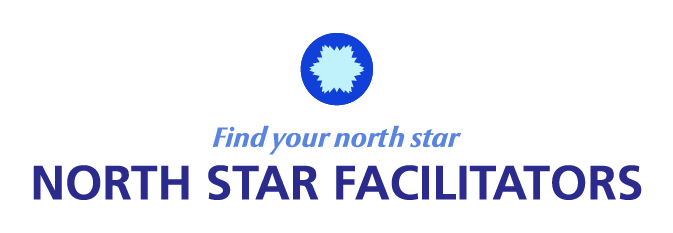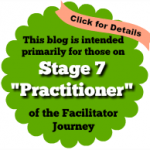Art of Maintaining a Clear & Focused Facilitator Mind

I just came off a silent meditation retreat. I do these every year to clear my mind. It also helps me set new intentions and practices. I know that as facilitator I need to come to the group with a clear and sharply focused mind. There are many ways to develop a mind free from distractions. Let’s talk about three ways to develop and maintain your own best mind-state.
In this particular most recent retreat, my intention was to notice when I was falling into habitual patterns. We do this as facilitators. We use the same agendas, the same tools, the same responses, and maybe even the same ways of preparing ourselves for a meeting. So I’m challenging myself and you, to consider clearing your mind of all these habitual ways of preparing for and delivering your facilitations.
Examine Your Habitual Practices
The first way I clear my mind is to notice when I am acting out of habit. For example, I know that I’m most comfortable preparing a detailed facilitator guide for myself . This guide has timing down to the minute, the purpose of every activity, a really detailed description of each activity, an exhaustive list of props and supplies needed, and more. You might be asking: why am I trying to break what some may call a useful habit of having a detailed agenda guide?
I need to ask myself , “Will it be my best thinking if I use this particular style of guide?” Maybe this client work requires much more creativity vs. my typical, linear approach. Thus instead, I will create a giant flipchart mind map where I brainstorm with different colors and images all of the issues pertaining to the group. The use of a mindmap as a facilitator agenda has the benefits of being flexible in the moment. It might have rough times assigned to each themes but no sequential, strictly timed activities. For some groups in chaos or without clearly defined outcomes, this might be a better approach.
Or, if I’m working with a co-facilitator I could just let them decide how to develop our facilitation plan. They may have a brilliant, different way that I’ve never used before. And rather than resist this new way of developing our plan, I can embrace it as an opportunity to break my usual habit pattern.
When I don’t have deeply held patterns, it frees up my mind to hear and discover new things. It creates more spaciousness. that is one component of a clear mind.
Minimize the Impact of Distractions
Earlier I talked about distractions. Think of all the ways we get distracted during a meeting we are facilitating. It might include, people arriving late and you are not expecting this. The room might have things in it left over from previous meetings that are visually distracting. There may be unexpected noises coming from the hallway or nearby rooms. You might have forgotten to bring a copy of your facilitation plan or a key handout. Or, the one we often dread the most, the technology does not work. These are all distractions that will cause your mind to go into chaos or serious anxiety.
Here are a few ways I maintain a clear, calm mind in the face of distraction:
- I’m not sure I can tell you how to do. I often have nightmares that help me clear my mind of all the possible worst case scenarios. The nightmare is so bad that anything that happens in real life pales in comparison to the nightmare. I don’t recommend this technique but if it happens to you, know it may be serving a useful purpose.
- I journal about my worries/doubts and often will include an antidote about how to deal with that worry.
- I work closely with the client (sponsor) to communicate what I think will happen. I also caution the client to expect that something different could occur. This reduces my own worry about not meeting the sponsor’s requests.
- I make sure that I have a very clear understanding of what is the most important outcome.
- Sometimes I add a higher level outcome that the sponsor has not requested but I sense is deeply needed based on my interactions to date. I keep this higher level outcome in the front of my mind so that distractions to it are not allowed to “touch my resolve” to achieve it. Often this higher level outcome is what we call an “experiential aim” in the ToP methodology. Examples include: acknowledge the incredible agility of each team member; support the group leader who is experiencing “attack” from team members and model how to deal with those attacks.
Expect the Unexpected
In any facilitated event, decide to expect the unexpected. It’s a motto I’ve come to use a lot lately. It prepares my mind to not be distracted from unusual circumstances. A flexible, adaptable mind is a key competency that we all need to cultivate as facilitators. The IAF competencies for this are: D3: Adapt processes to changing situations and needs of the group; and, F1: Modify personal behavior / style to reflect the needs of the group. You can not do either of these things if you are working in habitual ways, distracted by the distractions or rigidly controlling against anything unexpected.
What do you do to clear your mind before an event and keep it clear while facilitating in difficult circumstances?
Resources


